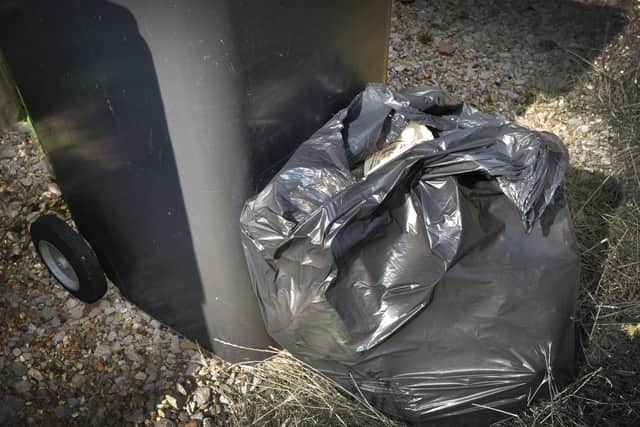New bin lorries 'don't mean end of weekly refuse collections' for Lewes district
and live on Freeview channel 276
Lewes District Council could soon have its first fleet of electric bin lorries, as part of plans to achieve net zero carbon emissions.
On Thursday (June 9), Lewes District Council’s cabinet heard how council officers will be conducting trials of vehicles including electric refuse trucks, ones fuelled by hydrogen and others that utilise renewable diesel.
Advertisement
Hide AdAdvertisement
Hide AdSubject to these tests and council approval, the council is to purchase six electric vehicles for food waste collections, which would be expected to hit the road in 2023.


In a statement issued after the meeting, cabinet member for recycling, waste and open spaces Julie Carr said: “The Co-operative Alliance’s shared goal is for the council to become net zero carbon and fully climate resilient by 2030 and the decision today is a massive step forward in our work to achieve that.
“We all want the cleanest and most modern refuse fleet, but in getting to that point we have to factor in the rapid speed at which the technology is evolving. Undoubtedly, the new ultra-low emission solutions that are coming forward currently will be readily available and more affordable in time for us to meet our ambitions.”
Currently the council’s food waste collections are made by lorries with two compartments, which collect both general waste and food waste on the same round.
Advertisement
Hide AdAdvertisement
Hide AdIf the plans are approved in time, the first round of electric vehicles would be expected to run as a purely food waste collection, with separate vehicles collecting general waste and recycling.
But the council’s Conservative opposition group argued the running of two crews would increase staffing and infrastructure costs.
“This looks suspiciously like the first step to introducing fortnightly refuse collections”, said Conservative group leader Isabelle Linington, in a statement issued after the meeting.
“The council officers have done an enormous amount of work on this but the strategy being proposed by the anti-Conservative alliance running the council is fundamentally flawed.
Advertisement
Hide AdAdvertisement
Hide Ad“We just don’t accept the claim that a move to electric vehicles would be the trigger for residents to suddenly increase food recycling.”
When challenged on this point during the meeting, cabinet members denied the plans paved the way for fortnightly collections.
Officers meanwhile said the new fleet would allow for more efficient collections, as dedicated vehicles would not need to be emptied until completely full. This is not presently the case, as the existing dual-use vehicles need to be emptied once one compartment is full.
Even so, cabinet members accepted a Conservative-backed recommendation to look into refurbishing the council’s current dual-use fleet while purchasing just two electric vehicles.
Advertisement
Hide AdAdvertisement
Hide AdThis, Conservatives argued, would allow the council to test the technology first.
The council also intends to re-purpose and upgrade its remaining refuse and recycling collection vehicles rather than immediately making the move to ultra low emissions.
Cabinet member for sustainability Matthew Bird said: “Given where technology, global supplies and importantly the state of charging infrastructure across a predominantly rural district, this is the most sustainable and cost-effective option we can implement at this time.
“This is a flexible and sensible solution in the context of the current challenges facing the whole sustainable transport sector.”